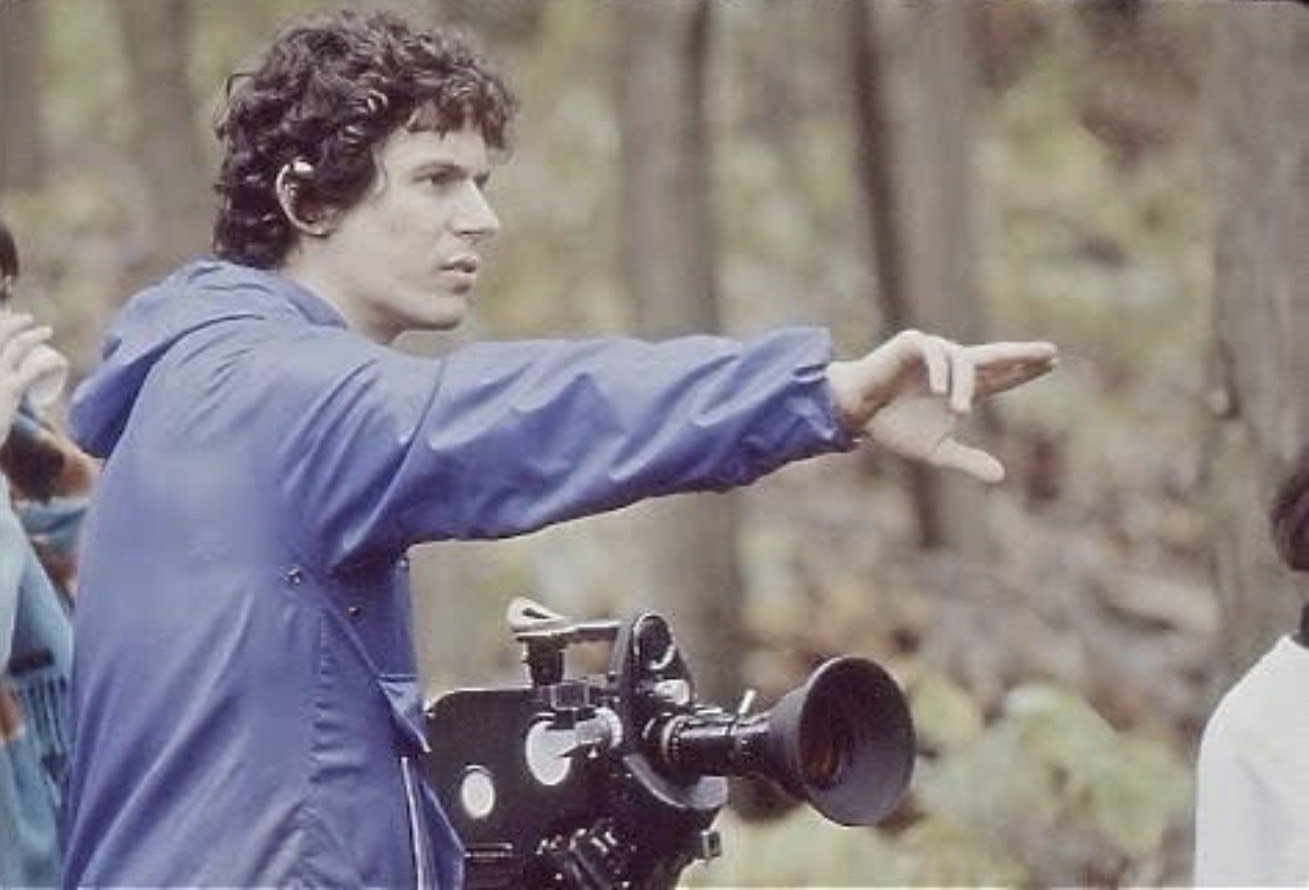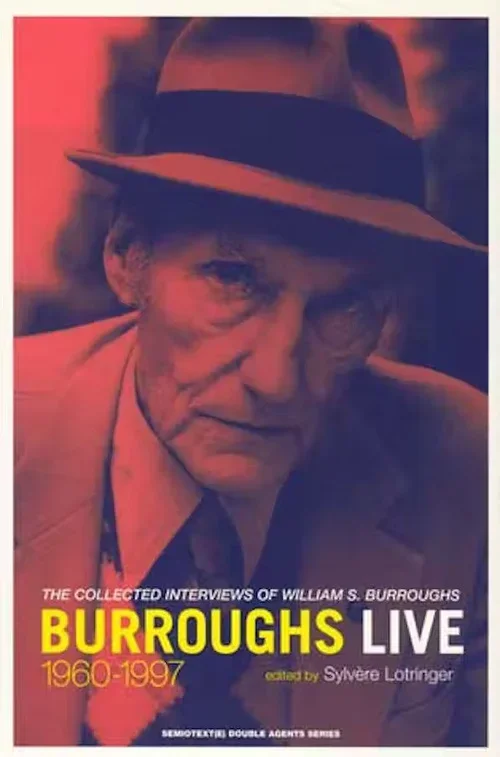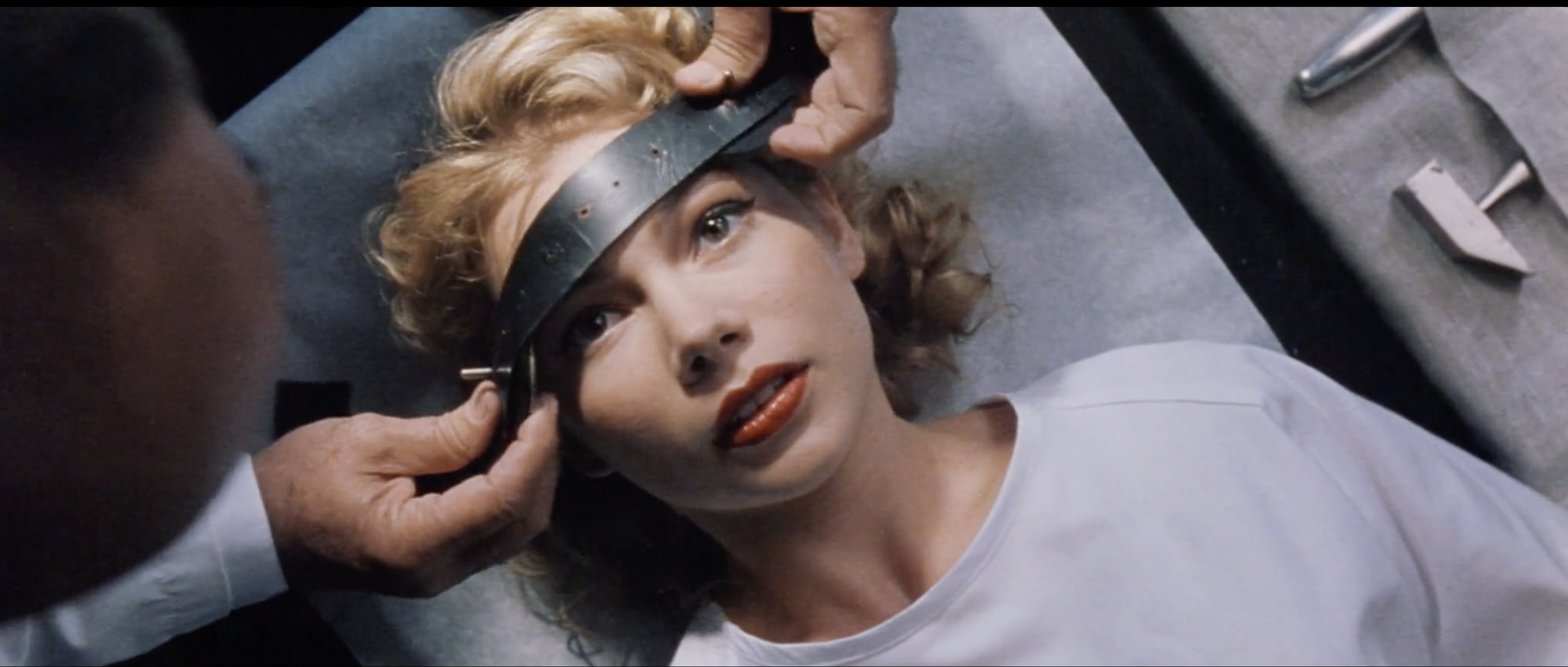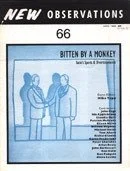
Richard C. Ledes
Artist • Writer • Filmmaker
Although I grew up in an ostensibly uncomplicated “white American family,” it was in fact riven with issues of race and class that were further complicated by beliefs that mental illness is transmitted by blood. The issues of race had to do with categories that are largely dormant today but continued to play a role in my family. My father’s parents were Pontian Greeks from Asia Minor who immigrated to the States in 1923 when members of the Christian population not killed in the genocide were expelled from Turkey, and, in turn, Greece expelled its Muslim population. My father’s family were poor and immigrated into a Greek community in the Bronx. The early 1920s was also the time when the Klu Klux Klan reached its peak popularity in the United States and part of their animosity was aimed at new immigrants from Southern Europe, including Greeks. My mother’s family from Baltimore Maryland belonged to what was known as the “Social Register,” a list of reputedly elite families of the city. Their politics were what was known as “Nativists,” opposing the immigration of families like my father’s. Her family’s inclusion in this apparent castle of privilege–into which my father who graduated from Yale wanted entry–was undermined in two ways that haunted my mother. Her family had lost its financial security and her brother was hospitalized as a schizophrenic for ten years in a veterans hospital after WW2. Eventually he was hit by a train near the hospital, either accidentally or as an act of suicide. According to the racial theories of eugenics that were widely popular at the time and were believed by her family, my mother’s brother’s illness meant she carried schizophrenia in her blood and could transmit it to her offspring. Because she was condemned by her own blood’s imperfection, she was able to marry the man she loved. Her schizophrenic brother's name was the one that was his father’s and that I was given, Richard.
Alongside the importance for me of any political or social issues has been a focus on aesthetics, on creating art that structures experience in a liberating and ultimately playful way. Two of the feature fiction films I have made, Adieu Lacan and V13, have been based on the writings of Lacanian psychoanalysts analyzed by Jacques Lacan, one of the leading intellectual figures of the 20th century. As my prolonged interest and engagement with psychoanalysis might suggest, I have been interested in the role of chance and irrational connections based on affinities of light, sound or movement, on following these out and seeing where they lead. Only through the deepest respect for these irrational elements am I able to complete my works.
June 9th, 2025 Athens.
Paternal grandparents leave Istanbul (Constantinople) as refugees during the ethnic cleaning and genocide of Pontian Greeks. They immigrate to the United States where they settle in New York City, first in Brooklyn and then the Bronx.
Chronology
1923
Richard Bayly Chapman, maternal uncle, a WW2 Veteran named after his father, attending Princeton University to finish his undergraduate degree after serving in the Third Army in WWII, suffers a psychotic break and is admitted to a Veterans Psychiatric Hospital with the diagnosis of schizophrenia.
1950
1956
January:
Richard Chapman is evaluated for a lobotomy. The psychiatrist in charge determines, “This patient has responded to Thorazine and a few electroshock treatments with considerable improvement, and lobotomy again at this time is not recommended.”
1958
November:
Richard C. Ledes is born and named after his maternal grandfather—the same person after whom his maternal uncle, who has been recently considered for a lobotomy and remains in a psychiatric hospital, was named...
After either wandering off from the grounds of the psychiatric hospital or after making an escape, Richard Chapman is struck by a train and killed a short distance from the hospital
Harvey School for Boys acquires a Super 8 camera. Ledes starts to film and edit Super 8. He begins to study ancient Greek and race dirt bikes. He organizes a student strike against the Vietnam War which obliges the school to not hold classes and instead discuss the war.
1969
Participates in the occupation of the administration building at Amherst College to demand the college divest in companies doing business in South Africa.
Graduates from Amherst College, with a B.A. in Ancient Greek, Drama, and English Literature.
Writes Hippolytys, which is performed at the Edinburgh Theater Festival in Scotland, directed by Helene Keyssar.
1979
1980
Acts in One Day in May, written by Greg Light at the American Center in Paris and the Edinburgh Theater Festival.
1981
Learns by heart in ancient Greek passages of the last book of the Iliad and performs them in a work entitled The Last Book, along with Rachel Kitzinger, and Mark Jaster at the Edinburgh Theater Festival.
1982
Writes, directs and produces a series of short plays including Midtown Stabber and The Gift of Walking and The Emperor with set design by the painter Mary Balomenos and in the atelier of the painter Rafael Mahdavi.
Animals, 16mm short film shot in Paris, camera operated by documentary filmmaker Richard Hamon, edited by American filmmaker John Bertucci with Rafael Mahadavi in the role of Woyzeck, based on the grandmother’s tale in Woyzeck by Georg Büchner.
Produces, writes and directs plays in Paris in the atelier of the painter Rafael Mahdavi, with whom he handprints a book entitled Outsider.
Short film Animals based on the grandmother’s tale in Büchner’s Woyzeck.
1984
Obtains the records of his maternal uncle, who had spent ten years in a psychiatric hospital of the Veterans Administration. The records culminate in a recapitulation of salient points of their content in the form of a recommendation for a lobotomy. This recommendation is turned down. A short time afterwards, his maternal uncle, who is named “Richard” after his father, escapes or wanders off from the hospital and is hit by a train. These records become the basis for the work of performance art “Taste,” at American Fine Arts Co., curated by Colin DeLand.
1987
Writes “AIDS and the Ninjas,” Copyright (the first and only issue of the Harvard University journal).
1988-1990
Writes on performance art and video and film for Artforum and Artscribe.
1988
1989
Starts Graduate School in Comparative Literature at NYU.
1989
Writes for ZG, edited by Rosetta Brooks, including interviewing Paul Virillio.
“In 2001 I became the only English translator of William Burroughs. Ths paradoxical role--being the English translator for a writer in English--came about because Burroughs had done a series of interviews in France that had been tranlsated and published in French, after which the original interviews were lost. At the request of Sylère Loringer, I translated these for the Semiotexte collection of interviews.”
2001
1989 - 1996
Studies in the Graduate Department of Comparative Literature at NYU and obtains his Ph.D. Research for his doctoral dissertation includes volunteering at an outpatient center for severely and chronically mentally ill patients. He starts a reading group where they read aloud the short stories of Edgar Allan Poe, Herman Melville and Nathaniel Hawthorne. He assistant-directs the theater program in which ”clients,”--a term used in place of “patients”--compose through improvisation and then perform their own plays. He also works with and attends regularly meetings of a variety of clinical groups, notably The Payne Whitney History of Psychiatry Section and the Apres Coup Psychoanalytic Association, of which he remains a member.
A Hole In One, written and directed by Richard C. Ledes and starring Michelle Williams and Meat Loaf is filmed at a decommissioned psychiatric hospital outside of Halifax, Nova Scotia, Canada. Set Designer Bill Fleming converts different parts of the hospital into the different locations mentioned in the screenplay. The surgical theater of the hospital plays itself.
2002
2004
Gate of Heaven, short film, documents the grave markers with numbers and no names of a cemetery for deceased psychiatric patients of the Harlem Valley Psychiatric Hospital.
2004
2008
A Hole In One premieres at Tribeca Film Festival and is nominated for the Jury Film Award.
The Caller, starring Frank Langella, Elliott Gould and Laura Harring, premieres and wins the Best Made in New York Film Award at the Tribeca Film Festival.
2010
Haiti and Horror Films, Short Film, about the connection of Haiti to Horror Films, made after the major Earthquake in Haiti during the same year.
Interviewed by Kristina Huang for Social Text on the subjects of Haiti and horror movies.
2012
Fred Won’t Move Out, starring Elliott Gould, opens at the Edinburgh Film Festival and is named by the British Film Institute (BFI) one of the ten best films of Eliott Gould.
2012
Foreclosure, starring Michael Imperioli, is filmed in the midst of the foreclosure housing crisis in the midst of a neighborhood in the throes of having homes repossessed by banks and other lending institutions. The title of the film plays off of the coincidence between its meaning in regards to housing and its use as the English translation for the structure of psychosis–madness–in the work of the French psychoanalyst Jacques Lacan.
Golden Dawn NYC, a short film made according to a suggestion of the Greek American poet, historian and political activist Dan Georgakas consists primarily of interviews with members of the NY Greek community–both Greeks and Greek Americans– regarding their successful efforts to shut down deceptive fundraising efforts by the Greek fascist party Golden Dawn. The short film also highlights the history of fascism and Nazism in Greece and in Europe.
2014
2014
The Dark Side, starring Ali Ahn and Edoardo Ballerini, is a hybrid romantic comedy and documentary filmed partially in Breezy Point. The film includes footage shot by a fire marshal of his own house and others burning down in the worst domestic fire in New York City since the Civil War.
Films No Human Is Illegal on the island of Lesvos (Mytilene) when it has become the main entry point into Europe for undocumented migrants fleeing war and endemic poverty in their home countries outside of Europe. The film chronicles the different camps housing the undocumented migrants and the volunteers on the beaches working with them.
2017
The Leatherman, short film, is based on the historical figure by the same name who wandered in parts of NY and Connecticut dressed in an outfit made of patches of leather sewn together around the end of the 19th century.
2018
Essay on Haroun Faroki in the Greek Online publication Marginalia
2019
2020
Adieu Lacan, feature film starring David Patrick Kelly, Ismenia Mendes and Antu Yacob, tells the story of a young woman who decides to do a a psychoanalysis with Jacques Lacan–a famous French psychoanalyst who became one of the most important intellectual figures of the 20th century–when her desire to have a child comes to an impasse and she wants to know why she is alone. The film is based on the autobiographical story of Betty Milan, a Brazilian psychoanalyst, which she recounts in her play Goodbye, Doctor and her book Lacan’s Parrot.
The Masque of the Red Death, first of three short videos based on the three stories by Edgar Allan Poe in which he mentions a plague. The three videos are later called by Ledes the “Poe Plague Covid Videos.” The Masque is shot remotely working with interdisciplinary artist Alisha Trimble residing in Connecticut.
2021
Shadow, second of the three Poe Plague Covid Videos, made in collaboration with Sabrina Mandell and Mark Jaster of Happenstance Theater. Like the first of the series, it is filmed remotely but this time the camera is with the performers. The final Poe Plague Covid Video, based on Poe’s story The Sphinx, is forthcoming.
2022
2024
Ikonophile Z, feature film, “a light romantic comedy about the extinction of all life on earth,” in which the language of critical theory serves as the language of love, starring Betsy Aidem, Laura Akaha and T. Ryder Smith. The film is shot over five days in a style derived from the work of the great Korean filmmaker Hong Sang Soo.
Athens Sanctuary 18 minutes - A Video Installation filmed in an active marble quarry on the side of Mount Pentelicus, outside of Athens. From the same mountain was taken the marble to build the Acropolis. Ledes conceives of the project and collaborates with artist, dancer, costume designer and choreographer Alish Trimble (aka Aliki Pavli) who choreographs two dances, one inspired by the Eumenides of Aeschylus and the other by The Oedipus at Colonus by Sophocles. The dances are set to techno music composed by Greek composer Anthony P. The final installation will include documentary photographs taken by Giorgos Vdokakis and transposed to light boxes.
2025
Death Driver Music Video with performance, lyrics and vocals by Richard C. Ledes and music by Silent Strike. This is the song to which the characters Chris and Laura dance in the feature film Ikonophile Z, directed by Richard C. Ledes, with an original score by Silent Strike and starring Betsy Aidem, Mitzi Akaha and T. Ryder Smith. Director of Photography Antonio Rossi, Editor, Alex Kantoros.
2025
V13 — Feature Film — Directed, produced and with screenplay by Richard C. Ledes, based on the play Vienna 1913 by Alain Didier-Weill. While Europe is on the brink of WW1, two young men from different backgrounds, Hugo and Adolf, become friends. One, a musician from a privileged background, chooses to undergo psychoanalysis with Sigmund Freud, while the other, a struggling artist obsessed with vegetarianism, takes up the cause of German Nationalism. The screenplay is based on the play Vienne 1913 by Alain Didier-Weill. His prior collaboration with the director, The Caller (2008), won the Made in New York Prize at the Tribeca Film Festival.
The Art
Media Art
I did a series of plays in Paris in the atelier of the painter Rafael Mahadavi in the 1980s and a subsequent multimedia work combining theater and film in a squat in Paris. I started doing performance art after having been invited to write on this genre of fine arts for a couple art magazines, including Art Forum and Artscribe. This led to Taste, a piece of performance art based on the psychiatric records of a schizophrenic whom I was told as a child emphatically I was NOT named after, my mother’s brother. Named “Richard” after his father, my maternal uncle was then nearing the end of ten years in a V.A. psychiatric hospital after serving in WW2. The ten years eventually ended when he either escaped or wandered off from the hospital and was hit by a train. Many years later as an adult, I got hold of his records. They penultimately contained a recommendation that he receive a lobotomy. For me growing up, he had been mostly erased, except for a few traces, including my name—which I eventually explored. After many years making feature films, I now return to the fine arts with my Poe Plague Covid Videos and the video installation Athens Sanctuary.
Essays
In French the word means “attempts.” For me the most important essays have been those collected under the title Essais by the 17th century French writer Montaigne. His are on an eclectic set of topics, including inequality, thumbs and cannibalism. Mine are mainly about my films and my personal connections to them but may very possibly appear to the reader to be no less eclectic.
Films
Movies combined my early love of art with my teenage love of racing motorcycles offroad. At this same time I was also starting to learn ancient Greek. Later on, film and psychoanalysis both intrigued me and I began to reflect on how they are both inventions of the late 19th century. The crash of these two kinds of invention have stimulated me to generate films in which they share an exchange of ideas through drama—of which the form of Greek tragedy has had a special importance for me. I’ve also been obsessed with the ephemeral—for example, the mental health doughnut celebrated in the 1953 annual report of the NY State Department of Mental Hygiene (a real page-turner). A Coney Island of the Mind is a book by Lawrence Ferlinghetti that also was of particular importance for me around the time I was racing dirt bikes. Coney Island stands in for Vienna’s Prater in my latest film V13.
Education
Ph.D. Comparative Literature
1996 Ph.D. New York University, Comparative Literature (Ancient Greek, English, French, German), New York City, NY
BA
1979 BA Amherst College, Amherst, MA
Publications
Outsider
1982, Outsider, with Rafael Mahdavi, Orleans Press: Paris
ZG
1989, ZG Magazine special double issue: Altered States. Interview with Paul Virillio on the space shuttle accident and “The ‘birth’ of technology.”
Copyright
1987, “AIDS and the Ninjas,” Copyright (first and only issue of the Harvard University journal).
New Observations
1989, New Observations: No. 66, “Bitten by a Monkey: Satie’s Sports and Divertissments.”
Artforum
1988-1990. Reviews of performance art, video and film for Artforum and Artscribe.
Talisman
1991, Talisman, Translation of the opening of the Antigone by Sophocles.
Postface to Adieu Lacan
April 2023, Postface to Adieu Lacan, Betty Milan, Editions Eres, France
Online Publications
Harun Farocki:
“You should be as distrustful of images as you are of words,”
October 23rd, 2018, Harun Farocki: “You should be as distrustful of images as you are of words,” Marginalia, Greece
Let There Be Light: John Huston's Film and the concept of Trauma in the United States after WWII
1998 Let There Be Light: John Huston's Film and the concept of Trauma in the United States after WWII, Apres-Coup Psychoanalytic Association















